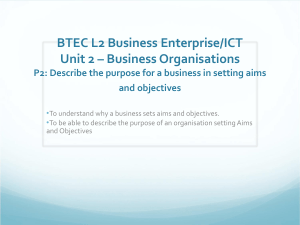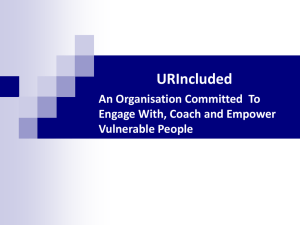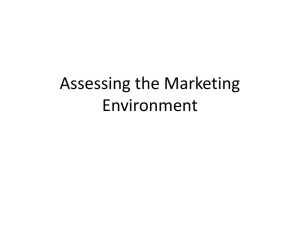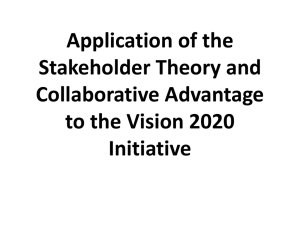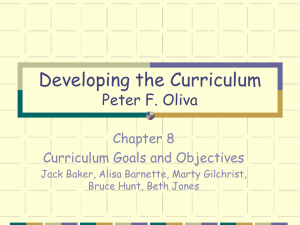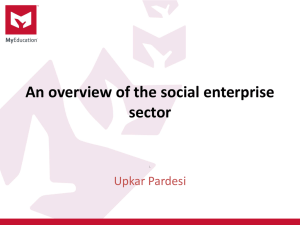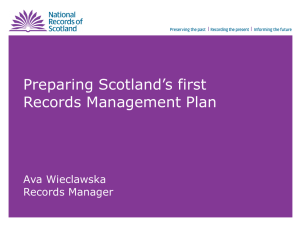Charity Finance Directors` Group
advertisement
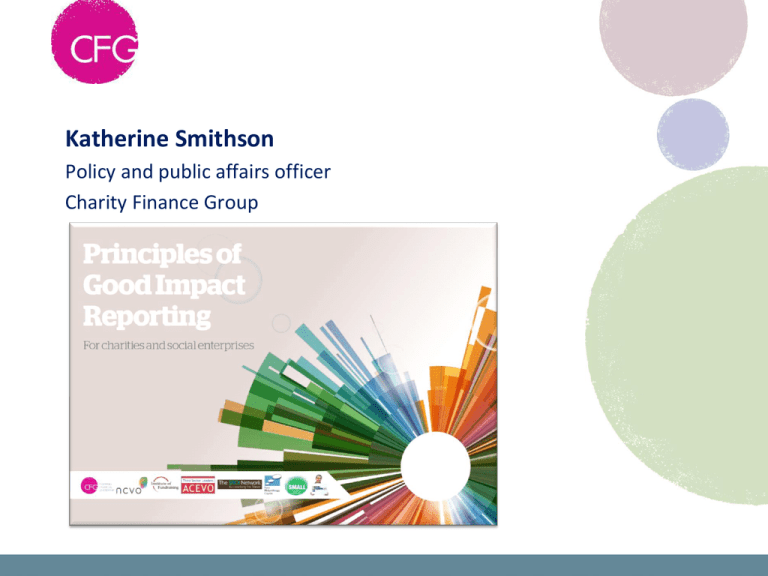
Katherine Smithson Policy and public affairs officer Charity Finance Group How should charities, social enterprises and community organisations communicate their impact? • Clarity: • Accessibility: • Transparency: The reader can quickly and easily understand the organisation through a coherent narrative that connects charitable aims, plans, activities and results. Relevant information can be found by anyone who looks for it, in a range of formats suitable for different stakeholders. Reporting is full, open and honest. How should charities, social enterprises and community organisations communicate their impact? • Accountability: • Verifiability: • Proportionality: Reporting connects with stakeholders, partners and beneficiaries to tell them what they need to know, and provide reassurance. Claims about impact are backed up appropriately, allowing others to review. This can range from informal stakeholder feedback to external audit. The level and detail of reporting reflects the size and complexity of the organisation, and the complexity of the changes they’re trying to bring about. What should charities, social enterprises and community organisations communicate about their impact? 1. Clear purpose • • • Why do we exist? What issue are we ultimately trying to tackle? What overall impact do we want to have? What change do we seek? What impact do our key stakeholders want us to have? 2. Defined aims • What are our specific short and long-term aims? • How does achieving these aims help us achieve our overall purpose/impact? What should charities, social enterprises and community organisations communicate about their impact? 3. Coherent activities • • • • • What activities do we carry out to achieve our aims? What resources do we use to make these activities happen? What are the outputs of these activities? How do our activities help us achieve our aims and create change? Are our activities part of a coherent plan? 4. Demonstrated results • What outcomes/impact are we achieving against our aims? • What impact are we achieving against the overall change we seek? What should charities, social enterprises and community organisations communicate about their impact? 5. Evidence • • • • How do we know what we are achieving? Do we have relevant, proportionate evidence of our outcomes and impact? Are we sharing evidence to back up the claims we make? Are we seeking feedback, review and input where appropriate? 6. Lessons learned • • • • • What are we learning about our work? How are we communicating what we learn? How are we improving and changing from what we learn? What has happened that we didn’t expect (positive and negative)? Are we allocating resources to best effect? ‘Principles into Practice’ - Putting the principles into context • One size doesn’t fit all! This applies to measurement and overall strategic approach • Good impact reporting is not just about outputs at the reporting stage, it is about embedding impact across the organisation Top-down drive, bottom-up participation, stakeholder involvement • Better communication starts within the organisation How does the organisation talk about impact with staff, volunteers and the board? Sightsavers SIM Card Brings together Strategy, implementation and monitoring into one communication format Unlimited potential • Used a range of tools and accreditations in order to verify the quality of their work in a number of areas – closely linked with the needs of their key stakeholder groups Social accounting and audit Balanced score card Investors in People • Mix of internal and external monitoring and review processes • Integration across the organisation; ‘In this way, accounting and reporting of impact is what the organisation does – and has to do – every day. This has not only made the approach coherent but also minimised the associated workload, which would have been disproportionate had it been “bolted on”.’ Questions? Experiences?
